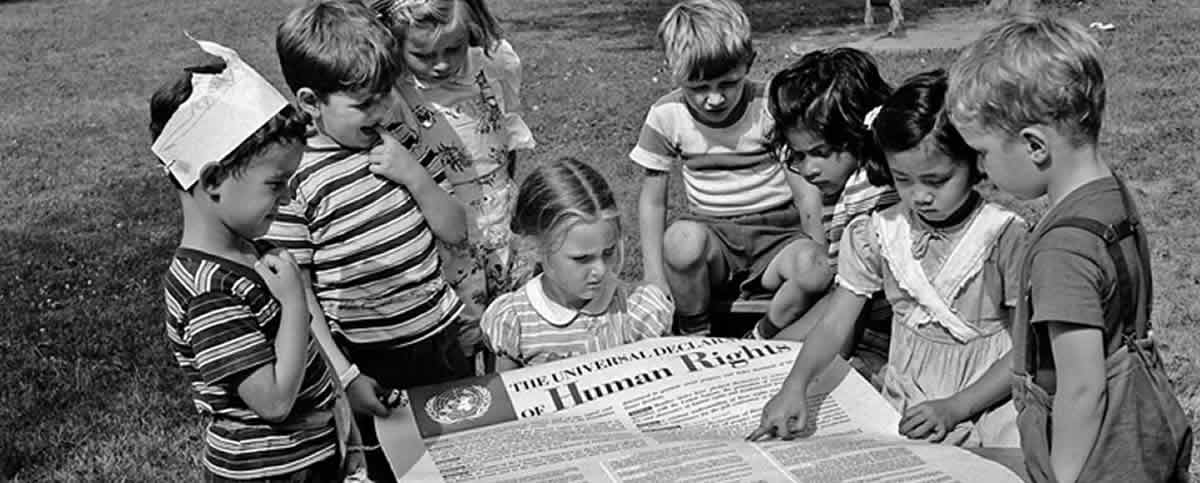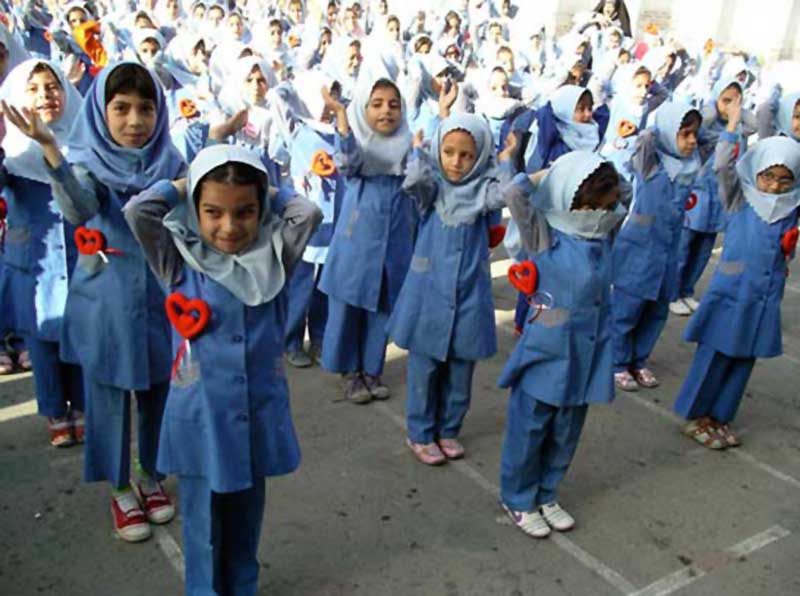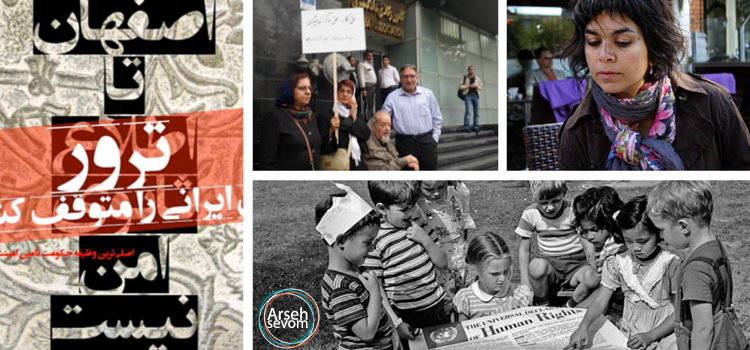
Iran Human Rights Review: United Nations
October 30, 2014
The First Day of School in Iran: You Can’t Say “That”
November 2, 2014The sons of Adam are limbs of each other,
Having been created of one essence.
When the calamity of time affects one limb
The other limbs cannot remain at rest.
If thou hast no sympathy for the troubles of others
Thou art unworthy to be called by the name of a human.
— Saadi, Eighth century Persian poet
Arseh Sevom — On October 31, 2014, from 9:30 in the morning until 2:30 in the afternoon, the human rights record of The Islamic Republic of Iran will be under scrutiny at the United Nations Office of the High Commissioner for human rights in Geneva. Four years ago, recommendations were made to Iran to improve its situation. Promises were made. Promises were broken.
This newsletter highlights some of the work Arseh Sevom has done recently.
Acid Attacks in Esfahan (fa)
Over the past few months, several young women have been attacked with acid in the Esfahan region. Arseh Sevom Persian has been following the story.
The violence against women in the Esfahan region has a terrifying precedent. In 2011, Amnesty International reported on gang rapes in the region. In one incident, fourteen men broke into a private home during a party, locked the men in one room, and raped the women. Instead of of speaking against this crime, Colonel Hossein Hosseinzadeh, the Chief of the Police Detectives Bureau in Esfahan, said: “If the women at the party had worn their hijab properly, they might not have been sexually assaulted.”[1] His comments appeared to justify and encourage violence against women.
In a 2013 statement, the UN Office for the High Commission on Human Rights called on nations to do more to protect women from violence. They noted that “extreme forms of violence” against women are present on every continent. They stated that “these manifestations of violence are culturally and socially embedded, and continue to be accepted, tolerated or justified – with impunity as the norm,” adding: “The failure of States to guarantee women’s right to a life free from violence allows for a continuum of violence which can end in their death.”[2]
The Islamic Republic of Iran should actively protect women from terror in public spaces, as it should protect all of its citizens. Acid attacks, gang rapes, and other forms of violence are directed specifically at women. They are barbaric. The Islamic Republic needs to end such brutality immediately. Hojatoleslam Mohammad Taghi Rahbar correctly said, “Such an act under any pretext is reprehensible. Even if a woman goes out into the street in the worst way, no one has the right to do such a thing.”
[1]: Amnesty International. Iranian Women Call for Action on Gang Rapes. August, 2011. http://livewire.amnesty.org/
[2] UN OHCHR “Commitments for women’s rights: time to turn empty promises into concrete changes for women.” http://www.ohchr.org/EN/
#UPRIran
Iran faces its UPR on October 31, 2014. Many activists are calling on international support to hold Iran accountable for the promises its made at its last UPR four years ago. Read more…
The Iran Human Rights Review has issued its most recent issue on the topic of the United Nations.In her introduction to this issue, Tahirih Danesh writes:
For all the flaws of the UN system set out here and by other contributors, the UN remains the only international body that is able to exercise direct influence on human rights issues that maintains the, if sometimes grudging, participation of the government of the Islamic Republic of Iran. Therefore it provides an important mechanism for civil society, be it international, diasporan and, where possible, based in Iran, to hold the IRI government to account against its international commitments and domestic constitutional obligations.
You can find a piece from Arseh Sevom’s Tori Egherman in the current issue:A rising tide lifts all boats: Human rights in Iran, cooperating for change.
She also wrote a piece in Article 19’s Azad Tribune, which we have republished: The First Day of School in Iran: You Can’t Say “That”.
Mahsa Shekarloo: Women’s Rights Activist, Internet Pioneer
This past September, we said goodbye to Mahsa Shekarloo who died from an aggressive form of cancer. She is missed by all who knew her. Mahsa was thoughtful, skeptical, and insightful. In life she would not have wanted to be the center of so much attention. Her passion and work were not done to fulfill a personal ambition or to place her front and center in the public spotlight. She worked because of her great curiosity, her dedication to human rights and the women’s movement, and her belief in the possibility of change.
Work on the Civil Society Cookbook continues…
Here’s a preview:
“You want to do something about injustice, because if you think ok, I am angry, or I am disappointed, or people are bad and that is never going to change, then that anger and disappointment can translate itself into frustration and even into hypocrisy. But I try to translate my anger into positive action. I think, what can I do about it? What can I change?”
— Farah Karimi, Executive Director Oxfam-Novib, Farah Karimi on Leadership, Change, and Compromise
Please share…
We depend on you to help us get the word out. So please share. Subscribe to our newsletter:





